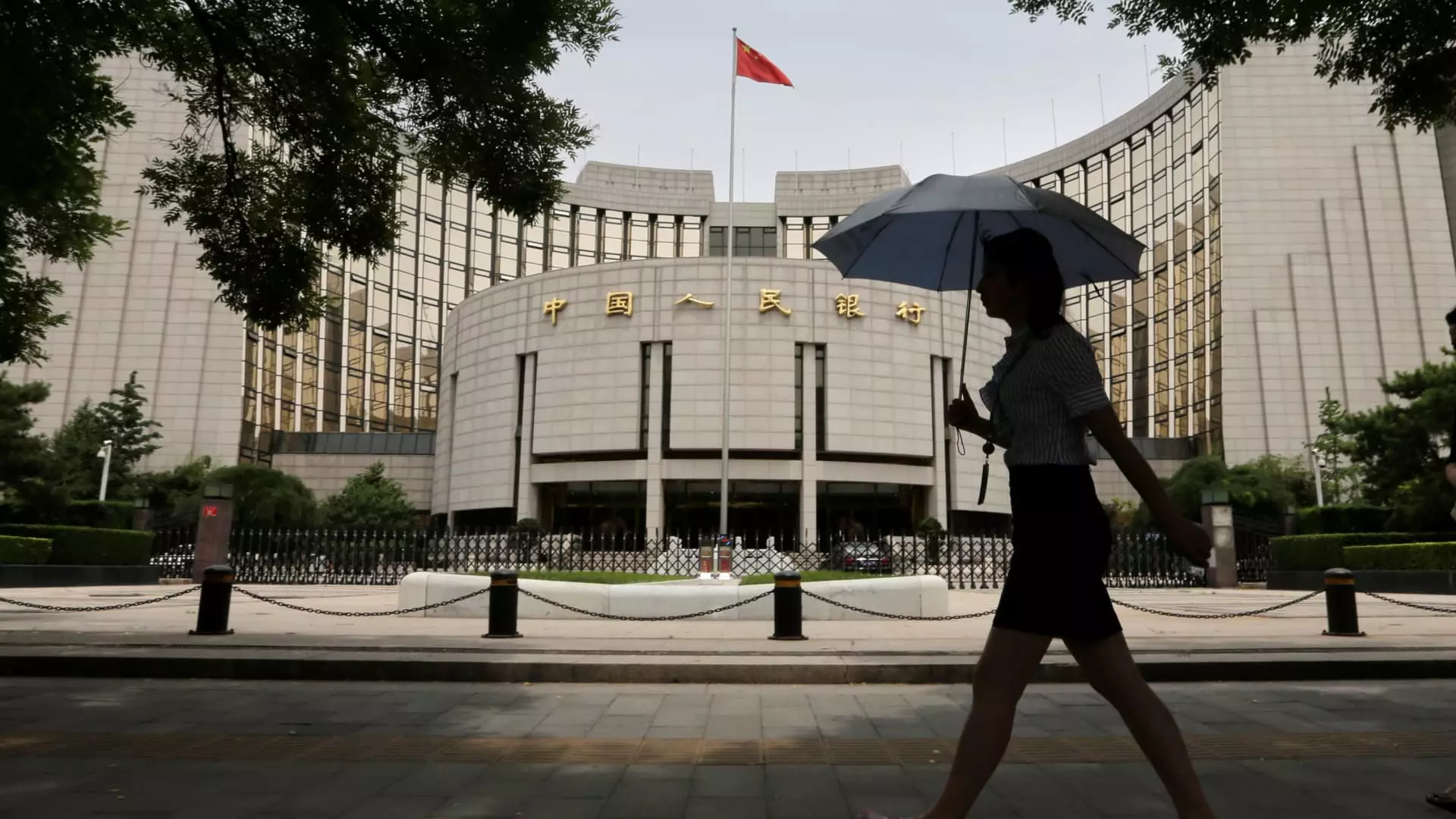The anticipation surrounding the U.S. Federal Reserve’s easing of interest rates heralds a significant shift in the global economic landscape. Many investors are closely watching this decision, as the Fed’s actions can influence monetary policies across the globe, including in China. Historically, adjustments in U.S. interest rates have a ripple effect, affecting foreign exchange values and global investment priorities, particularly for markets that compete for capital, like China. The expectation is that as the Fed loosens its monetary policy, authorities in China may find themselves with more room to maneuver economically, potentially boosting investor confidence and market activity in Chinese equities.
HSBC analysts suggest that easing monetary policies in the U.S. could serve as a catalyst for a significant revaluation of Chinese growth sectors, particularly when it comes to high-value industries such as semiconductors and consumer electronics. They argue that the price-to-earnings ratios in China could improve substantially, with growth projections suggesting a 44 percentage point outperformance over value sectors. However, as optimistic as these assessments may appear, they underscore the importance of strong earnings growth as the real key to unlocking positive market dynamics in China.
Despite the optimism regarding high-growth sectors, it is crucial to consider the broader economic context in China. Industry players and analysts alike have indicated that, while the potential for growth is considerable, investors are likely to adopt a more cautious stance until concrete signs of stable earnings growth materialize.
The Challenge of Global Competitiveness
U.S. interest rates have been a significant factor in shaping global investment strategies. When they are high, they draw capital away from other markets, including China, as investors flock to Treasurys for perceived safety and return. This trend has been exacerbated by extraordinary gains in technology stocks, such as Nvidia, which have surged dramatically due to the rise of artificial intelligence. As Chinese markets strive to enhance their attractiveness to global investors, they face an uphill battle of not merely relying on lower interest rates but improving core business fundamentals as well.
Morgan Stanley’s chief China strategist Laura Wang pointed out that true investor confidence hinges on solid business fundamentals and the macroeconomic climate, which currently display vulnerabilities. This highlights the notion that investor enthusiasm towards Chinese stocks may remain subdued unless the underlying economic indicators—such as corporate earnings and consumer confidence—show compelling improvement.
Deflation and Economic Confidence Crisis
China’s economic performance is marred by concerns over deflation. The core consumer price index has illustrated stagnation in price rises, suggesting a lack of consumer demand. With former People’s Bank of China governor Yi Gang emphasizing the urgency of addressing deflation, substantial action is needed beyond mere monetary policy adjustments. The sentiment emerging from this situation suggests that a fundamental crisis of confidence has taken root.
Analysts advocate for actions that encourage consumer spending, as simply pushing down interest rates may not be sufficient if consumers and businesses hesitate to utilize those savings effectively. Without a robust confidence from households and sectors within the economy to drive spending, potential gains from interest rate cuts may remain dormant.
The hesitance among businesses to increase capital expenditures has underscored an underlying reluctance to invest, contributing to a lack of economic momentum. While some sectors such as internet services and consumer goods have experienced stronger earnings, the industrial and renewable sectors have confronted significant declines in spending. This trend is disconcerting, especially as it reflects broader apprehensions within the business community.
Despite the cautious outlook on capital spending, some analysts predict modest earnings growth for the MSCI China index. Yet, much rides on stabilizing broader economic issues, as the overall growth environment remains challenging. HSBC’s projections suggest that if the U.S. manages to avoid slipping into recession, certain Chinese equity indices could provide reasonable returns post-Fed easing. In the meantime, an astute selection of stocks—particularly those exhibiting healthy growth potentials while managing debt—may help investors navigate this precarious landscape.
As the Federal Reserve prepares to ease interest rates, the implications for Chinese markets remain complex and multifaceted. While there are opportunities for an upswing in specific sectors, fundamental challenges regarding earnings, consumer confidence, and the broader economic backdrop must be addressed. The path to revitalized investor interest in Chinese equities demands a nuanced approach, emphasizing robust earnings reports and resilient economic fundamentals to unlock the full potential of this emerging market. As such, stakeholders must remain vigilant and adaptable in an increasingly interconnected global economy.

